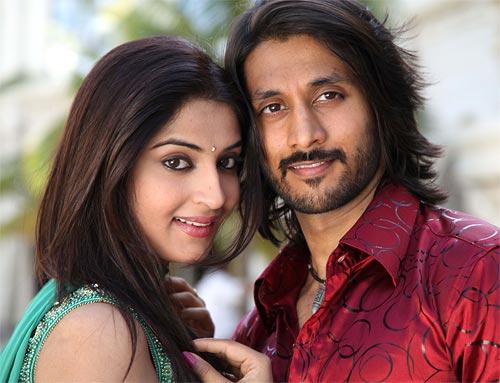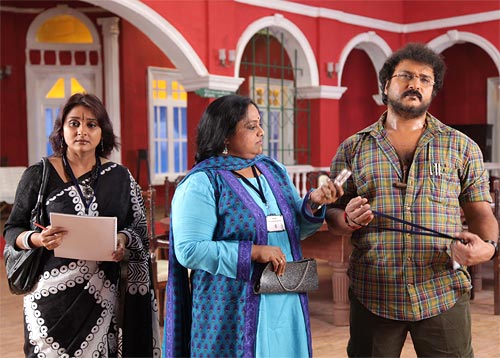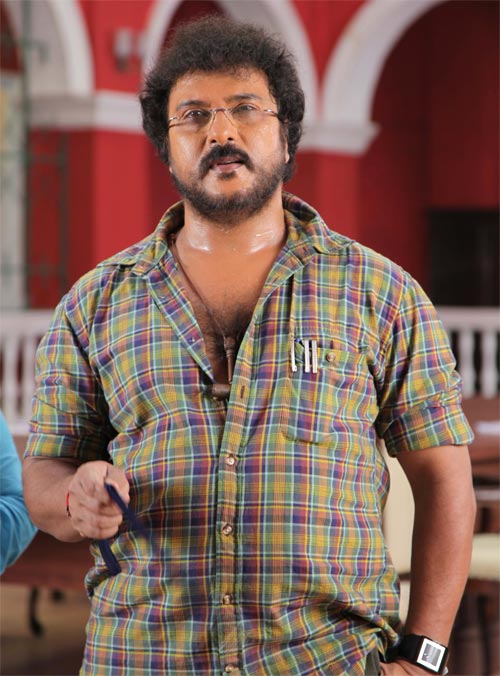Srikanth Srinivasa in Bangalore
Kannada writer and film-maker Ravi Srivatsa whose films show crime as an inseparable part of society, will release his latest offbeat and experimental directorial venture Dashamukha (10 Faces) this Friday.
Dashamukha, he says, is inspired by the Hollywood film Twelve Angry Men made in the 1950s, and the Hindi film Ek Rukha Hua Faisla released in the 1980s. It is also inspired by a Kannada play Aa Mukhagalu that was scripted by G V Shivanand (and directed by Srinivasa Prabhu) and performed in the 1980s, with Avinash and Devaraj in key roles.
In this interview with Srikanth Srinivasa, Ravi Srivatsa talks about Dashamukha and why he thinks it's an important film.
What is Dashamukha all about?
Dashamukha is a courtroom drama. When I saw Twelve Angry Men we decided to make a film based on it. It is an offbeat experimental film for me.
I thought it was the right time and it gave me an opportunity to do what I hadn't done before. I and director K V Raju worked together on the screenplay.
Twelve Angry Men starts with three key witnesses in a trial. Nine characters put forth their views in defence of these three witnesses.
'I never acted or behaved as a director on the sets'
Image: A scene from DasamukhaThe film is more dialogue-oriented and happens mostly under one roof....
Each and every frame is important for the audience. There is no room for relaxation. If you blink, you may miss something important. But, if the audience keeps an open mind and starts concentrating from the beginning, they will be involved in the story.
It makes audiences think because they will enjoy the link from one scene in the beginning to something that happens later.
How faithful have you been to Twelve Angry Men?
We have made a lot of subtle changes that go with the use of today's technology. The audience will get to know the background of the crime that is the cause for the trial.
The movie doesn't move out of the courtroom in the original. We have made an effort to create curiosity regarding the motive of the crime. We have a short love story woven into the narrative.
'The film was a creative satisfaction for the entire team'
Image: A scene from DasamukhaHow does the film unfold?
The film is about a murder trial that has come to an end with the judge about to pass his decree. Nine months into the trial proceedings, the judge is confused.
Real-life couple Avinash and Malavika play husband and wife in the movie. They fight among themselves as they differ in their views when it comes to the judgment.
We have used two cameras. In one intense scene, we have used eight cameras. A courtroom set was erected in a studio for the film that was shot in 15 days.
What was it like having to direct so many senior artistes?
I concentrated on the story and screenplay. I narrated this story to just five of them--Ravichandran, Anant Nag, Saritha, Avinash and Devaraj. Ravichandran was the first one to give me the green signal. Anant Nag came on board next. Devaraj and Avinash came together because they had worked together in the Kannada play Aa Mukhagalu.
They wanted to know what value I had added to the English original. Saritha had seen the original and readily accepted when I told her about her role.
I never acted or behaved as a director with them. There were no ego clashes because they were all passionate about working in the film.
Dashamukha is is an offbeat experimental film
Image: A scene from Dasamukha
What are you trying to say through this film?
This film gave me an opportunity to cleanse myself. This film tries to impress upon the need to adopt the jury system that was in vogue in the 1950s.
It would be helpful if a group of people come together to pronounce a judgment. It is just an assumption that if the jury system existed, how we could crack some complicated cases.
Why did you decide to make a film like this?
I made this more for the passion of film-making. It has given all of us in the team some amount of creative satisfaction.
If people say they are not happy with seeing something that is making them think, I am ready to admit that the movie will be a flop.





Comment
article